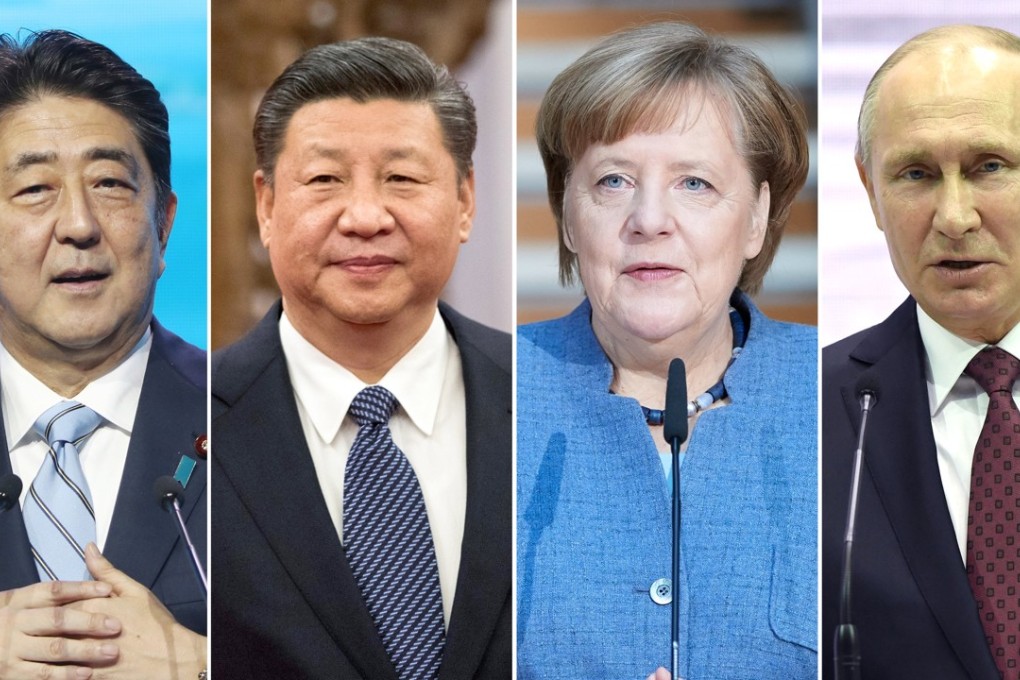Advertisement
Xi Jinping will have no limit to his term, but what about leaders in the rest of the world?
Angela Merkel has been chancellor of Germany for over 12 years, while Shinzo Abe is on his fourth term as prime minister of Japan
Reading Time:3 minutes
Why you can trust SCMP
0

When China’s late paramount leader Deng Xiaoping introduced a two-term limit on presidents and vice-presidents in 1982 it was intended, in the wake of the Cultural Revolution, to prevent the rise of an omnipotent leader with a lifelong mandate.
At the legislative sessions that start next week, Beijing is set to remove that restriction and in doing so clear the way for President Xi Jinping to stay in power indefinitely.
While the presidency in China is largely a ceremonial post domestically – Xi’s real power comes as general secretary of the Communist Party and chairman of the Central Military Commission, on which there are no term limits – the title does carry weight internationally as it enables its holder to meet other heads of state on an equal footing.
In many countries, including Germany, Japan, Britain and Singapore, there are no restrictions at all on how many terms a leader can serve, while in others, like Russia, anything is possible if you know how to play the system. The difference is that in most of these countries, the mandate to rule must be renewed by regular elections – and even in Russia, Vladimir Putin could be unseated.
Germany
Advertisement